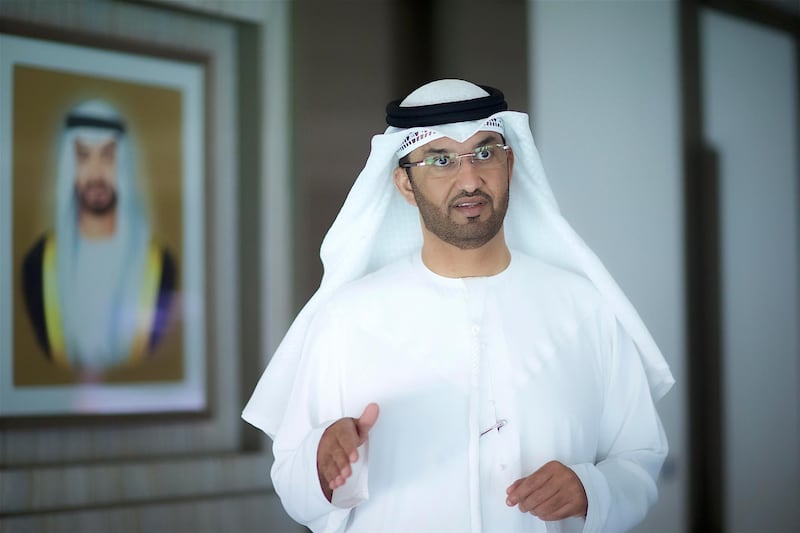Chief executives of Saudi Aramco and Abu Dhabi National Oil Company are optimistic that oil demand will return to pre-Covid levels by the end of the year, after vaccine campaigns and government stimulus.
"Global consumption is currently around 94 to 95 million barrels per day, and we expect it to rise to above pre-Covid levels by the end of this year," said Dr Sultan Al Jaber, UAE Minister for Industry and Advanced Technology, and Adnoc Group chief executive, during an online panel session during CeraWeek.
CeraWeek is an annual event run by IHS Markit.
The chief executive and president of Saudi Aramco, Amin Nasser, said oil demand could recover to 99 million bpd next year, helped by growth in energy-consuming markets such as China, East Asia and India.
"We are seeing good cause for optimism and recovery in demand," Mr Nasser said.
"The current demand that we see in the [global] market is about 94 million bpd."
The International Energy Agency and Opec last month revised their demand expectations for this year to about 96 million bpd.
Global oil demand, which slumped in the early part of last year as the pandemic halted all kinds of travel, is set to reclaim 60 per cent of lost volume this year, the IEA said.
Oil prices have surged more than 17 per cent over the past month, supported by vaccine distribution in developed economies and robust Opec+ action.
A strong economic rebound in China, which registered 2.3 per cent growth in gross domestic product in 2020 despite the pandemic, and recovery in India and the US bode well for overall pick-up in crude demand, Dr Al Jaber said.
"From last year's low of about 75 million bpd, the rebound in oil demand has been robust," he said.
Consumption, which faltered in the US and in Europe this year because of renewed lockdowns, is expected to increase as inoculations quicken.
Demand in India, a key Asian importer, was now back to "almost the same as pre-Covid", Mr Nasser said.
"I see demand continue to grow from here, especially from the second half of this year," he said.
Mr Nasser said he expected continued growth in natural gas, despite reservations in some markets about "fugitive" methane emissions.
The term refers to losses and leaks of methane from natural gas production.
The global energy industry is increasingly taking emissions of methane seriously because the gas is 28 times more potent than carbon dioxide in warming the Earth's atmosphere.
"Gas still has better credential over other fuels and it will grow significantly in a number of sectors, especially for power generation, and for industrial and commercial use," Mr Nasser said.
Saudi Arabia, which has begun switching its power stations to gas, will generate 50 per cent of electricity from the transitional fuel and the rest from renewables by 2030.
Hydrogen, which is becoming a top alternative fuel of choice for Gulf oil exporters, is also being given priority for investment.
"We are exploring the potential of new fuels such as blue hydrogen, which in fact shows great promise, as a close-to-zero-carbon fuel that could be produced at scale as part of our existing hydrocarbon value chain," Dr Al Jaber said.
Blue hydrogen is formed when natural gas is split using steam methane reforming.
Saudi Arabia is looking to increase production of ammonia, an easily transportable source for hydrogen, and is running pilots to increase output, Mr Nasser said.
"I expect the costs for both the green and blue hydrogen to come down in the future."
Green hydrogen refers to gas produced from renewables.
Saudi Arabia plans to sell green hydrogen produced in the kingdom to Europe by pipeline, its energy minister said last week.








